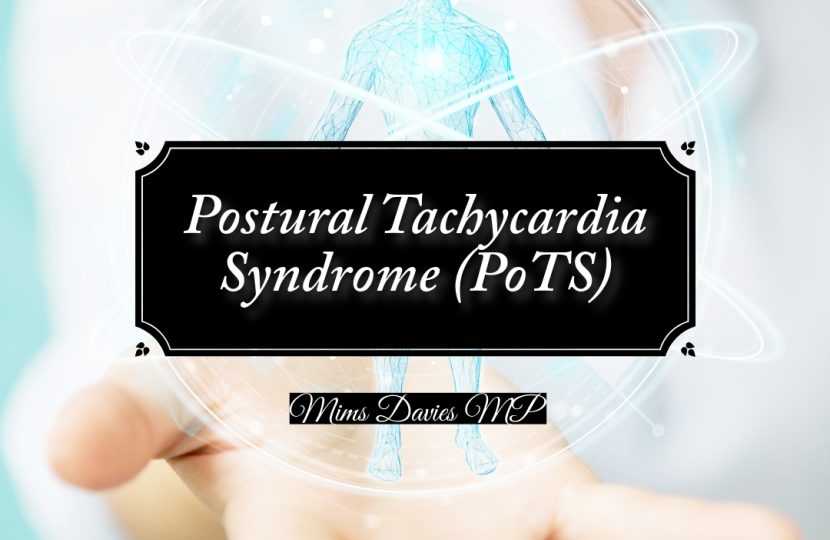
I have been contacted about the lack of awareness of postural tachycardia syndrome (PoTS) and concerns about support for people living with PoTS.
I fully recognise there is a need to raise greater awareness of postural tachycardia syndrome (PoTS) in the general public and among healthcare professionals so that those affected can be diagnosed earlier with the condition. However, members of the Government do not, by convention, sign any Early Day Motions, as doing so is likely to breach the Ministerial Code’s rules on collective responsibility.
PoTS, for those of us who are unfamiliar with the condition, is an autonomic nervous system abnormality where sitting, standing and exercise can cause symptoms including shortness of breath, chest pain, brain fog, dizziness, pain, fainting, vomiting and fatigue. Many people suffer a combination of symptoms, which can be chronic and debilitating; in some cases, leaving people bed ridden.
10-Things-You-Need-To-Know-About-PoTS.pdf (potsuk.org)
GPs have been provided with guidance from the National Institute for Health and Care Excellence (NICE) on PoTS. GPs are asked to investigate symptoms to ensure that it is not misdiagnosed. Following referral, patients are treated within NHS cardiology and neurology services. Where more specialist advice is required, a referral will be made to an appropriate clinician. While there is currently no cure for PoTS, studies indicate that 90% of people with a diagnosis of PoTS have improved or managed symptoms due to medically guided treatments and lifestyle changes. You can find out more here:
In 2021, the UK Rare Diseases Framework was published to set out a vision for improving outcomes for people with rare diseases, such as PoTS. The framework set out four priorities around delivering earlier diagnosis, increasing awareness among healthcare professionals, improving access to specialist treatment and providing co-ordinated care.
I would also like to reassure you that the Department for Health and Social Care supports the development of new treatments for rare conditions like PoTS. NICE evaluates all new medicines to determine whether they should be routinely funded by the NHS based on an assessment of clinical and cost effectiveness. Most new medicines are evaluated through NICE’s technology appraisal programme, and NICE also operates a separate highly specialised technologies (HST) programme for the assessment of medicines for very rare diseases.
I am grateful to those of you who took the time to bring this to my attention.




